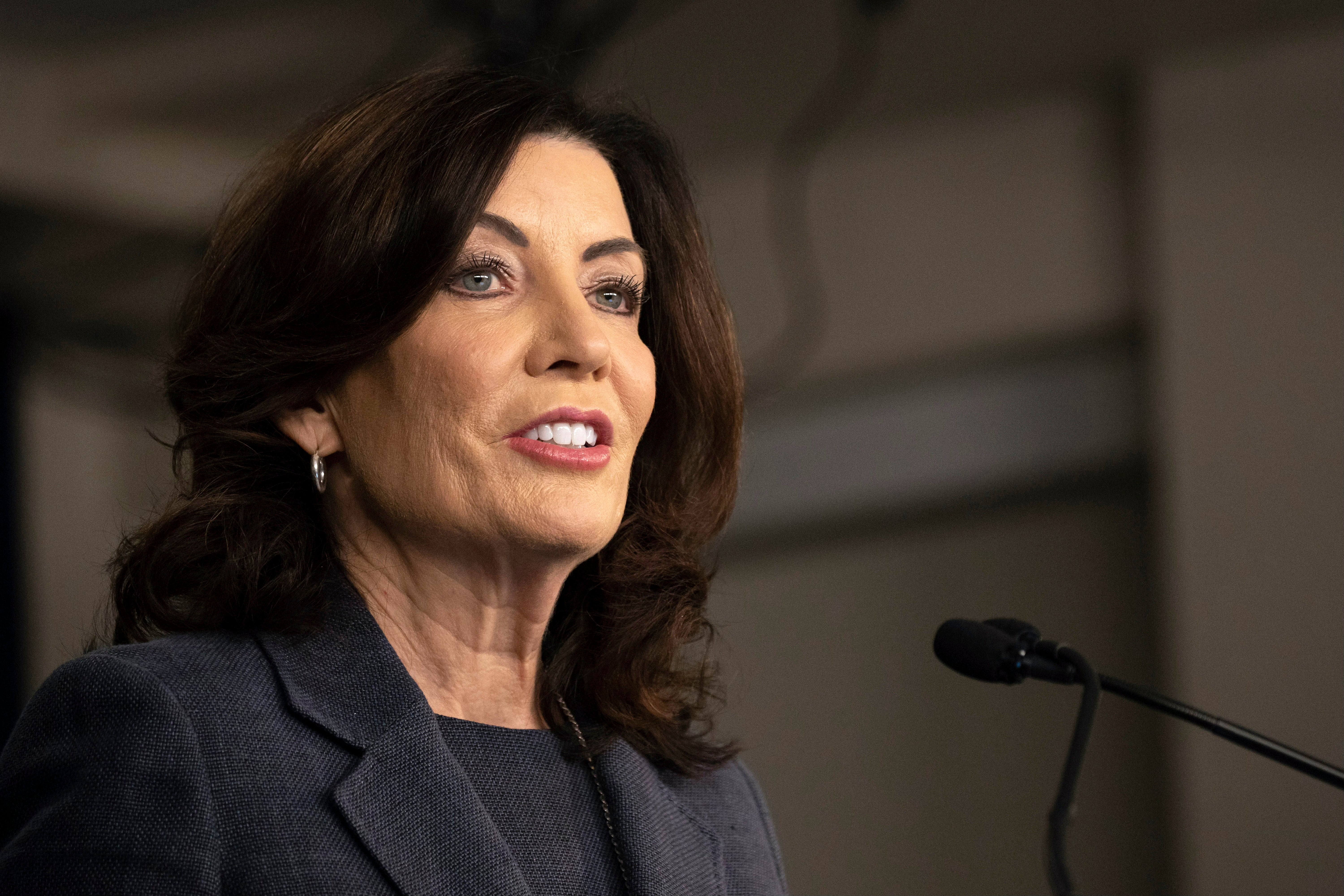New York will set up a commission to consider reparations for slavery
New York state will create a commission tasked with considering reparations to address the persistent, harmful effects of slavery in the state under a bill signed into law by Gov. Kathy Hochul on Tuesday

Your support helps us to tell the story
From reproductive rights to climate change to Big Tech, The Independent is on the ground when the story is developing. Whether it's investigating the financials of Elon Musk's pro-Trump PAC or producing our latest documentary, 'The A Word', which shines a light on the American women fighting for reproductive rights, we know how important it is to parse out the facts from the messaging.
At such a critical moment in US history, we need reporters on the ground. Your donation allows us to keep sending journalists to speak to both sides of the story.
The Independent is trusted by Americans across the entire political spectrum. And unlike many other quality news outlets, we choose not to lock Americans out of our reporting and analysis with paywalls. We believe quality journalism should be available to everyone, paid for by those who can afford it.
Your support makes all the difference.New York state will create a commission tasked with considering reparations to address the persistent, harmful effects of slavery in the state, under a bill signed into law by Gov. Kathy Hochul on Tuesday.
The bill signing comes at a time when many states and towns throughout the United States are attempting to figure out how to best reckon with the country's dark past.
“In New York, we like to think we're on the right side of this. Slavery was a product of the South, the Confederacy,” said Hochul at the bill signing ceremony in New York City. "What is hard to embrace is the fact that our state also flourished from that slavery. It's not a beautiful story, but indeed it is the truth.”
Under the law, which was passed by state lawmakers in June, a study commission will examine the extent to which the federal and state government supported the institution of slavery. It will also look at how New York engaged in the transfer of enslaved Africans.
New York fully abolished slavery by 1827, and much of New York City profited heavily off of the slave industry.
The commission would be required to deliver a report a year after its first meeting. Its recommendations could potentially include monetary compensation but would be non-binding.
The new law is likely to draw some controversy, especially with the possibility of cash reparations. But the governor and other state lawmakers emphasized at the ceremony that the legislation would help open up conversations about what reparations could look like.
“This is not just about who we’re going to write a check to, and what the amount is," said state Assembly Speaker Carl Heastie, a Democrat. "It begins the conversation with one recognizing the issues that affected Black people and descendants of slaves in this state.”
California became the first state to form a reparations task force in 2020. That group estimated the state was responsible for more than $500 billion due to decades of over-policing, and redlining that kept Black families from receiving loans and living in certain neighborhoods.
Other states including Massachusetts and New Jersey have considered studying reparations, but none have yet passed legislation. A Chicago suburb in Evanston, Illinois, became the first city to make reparations available to Black residents through a $10 million housing project in 2021.
The U.S. Congress apologized to African-Americans for slavery in 2009, but a federal proposal to create a commission studying reparations has long stalled.
___
Maysoon Khan is a corps member for the Associated Press/Report for America Statehouse News Initiative. Report for America is a nonprofit national service program that places journalists in local newsrooms to report on undercovered issues.